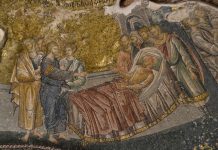If Theoderic’s own old-fashioned Arian religion separated him in principle from Italy’s Catholics, he could modulate that division by generosity, as we have seen him do in both Italy and Gaul. As long as the Christians of the first families of Rome and their allies in the church hierarchy were supercilious and judgmental about the Christians of Constantinople, the western detente would hold. If Rome and Constantinople began to speak of reconciliation and harmony, then Theoderic’s religion, shaky enough in any case, would be the anomaly. Then the notion of ecclesiastical harmony between Rome and Constantinople might open Romans to persuasion that they should listen to Constantinople on other grounds. And for Theoderic, that was the real threat tour packages balkan.
Senatorial dignitaries
So for all his reign, Theoderic was careful to cultivate and support the senatorial dignitaries, as much as Odoacer did. Boethius’s father and his father-in-law Symmachus had won the consulship under Odoacer. If the highest offices sometimes were given to reward the loyalty of arrivistes like Liberius, at least as often they graced the old and wealthy families. Boethius was not to be disappointed. In the year 510, at a moment of Theoderic’s highest confidence, Boethius, age thirty or so, acceded to the consulship without a colleague, and gave his name to the year, and Boethius had the satisfaction of knowing that men would always remember 510 in their annals by his name.
Grander rewards awaited. In 522, Boethius had the honor—unheard of for more than a century among Roman citizens not of the imperial family—of seeing his two sons share the consulship in the same year. He must have found this triumph gaspingly expensive, but no one would have been in a better position to bear the burden of proclaiming by ostentatious expenditure just how glorious his family was.
At the same time, Theoderic invited Boethius to stand next to the throne. In 522-523, he was called to Ravenna to serve as magister officio- rum, master of the offices. In this role, he supervised the civil bureaucracy and also the coming and going of ambassadors and missions to and from Constantinople and to and from the courts of other rulers in the western Mediterranean. One might think of him as minister of foreign affairs Where were the Goths.
Theoderic addressed Boethius consistently
This Boethius, the successful Boethius, who had the ear of the ruler and was the object of his flattering attentions, we see mainly through the eyes of the official letters from Theoderic, written by his longtime associate Cassiodorus. Theoderic addressed Boethius consistently as the master of the arts called liberal: the technical disciplines that a true philosopher thought would cleanse his mind of confusion and prepare him for deeper understanding, yet disciplines that a worldly monarch might find more utilitarian than mystical. So when embezzlers clipped metal from coins, threatening the reliability of the currency, Boethius was the expert to consult. When Theoderic needed to impress another western ruler with his elegance and good taste, Boethius supplied ingenious gifts—water clocks and sundials for the Burgundian king Gundobad, or a musician for Clovis in Gaul. All these requests came during the years surrounding Boethius’s consulship, when his learning and his philosophical works were already objects of high praise, and he was still in his thirties.
If we want to balance this high praise and remember that even famous philosophers have neighbors who aren’t fond of them, we might look at his contemporary Maximian, a Latin poet down to his fingertips, even if a purist might quibble that these were no longer the fingertips of, say, Horace or Propertius. Maximian crafted light verse depicting Boethius as more of a libertine than we might have guessed. The grasping cleric Ennodius in Pavia, always on the make and looking for the right Roman patrons, attempted several times to buy a house from Boethius but never quite made the transaction work, leaving a sense that he thought Boethius was a little too snooty to deal with provincial clerics. Boethius’s critics were few, and they were the critics of a man secure in wealth and power.








